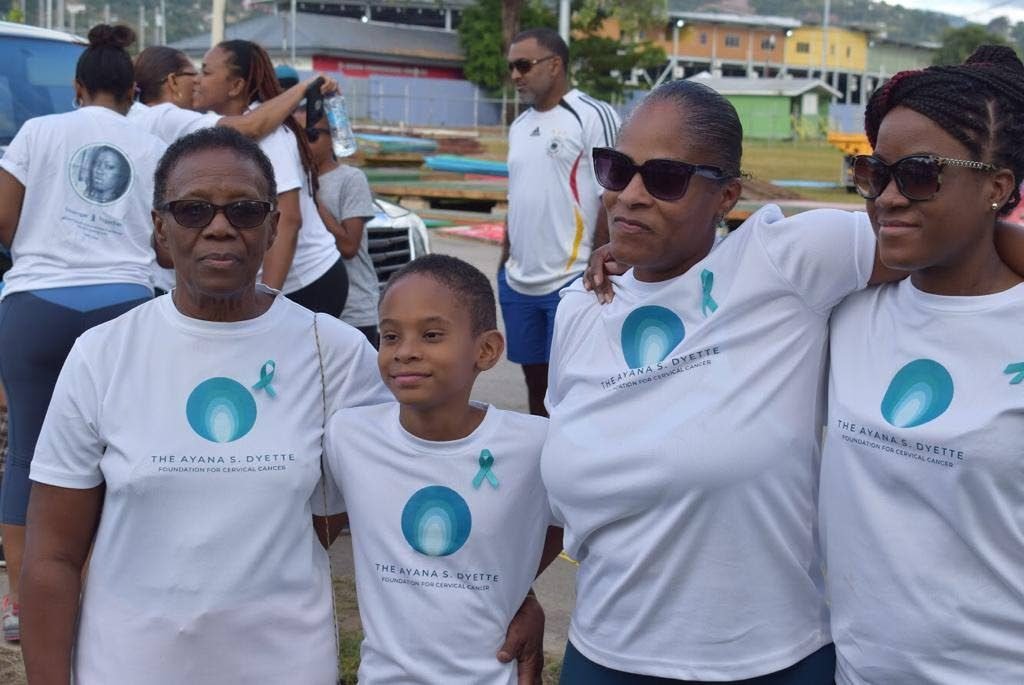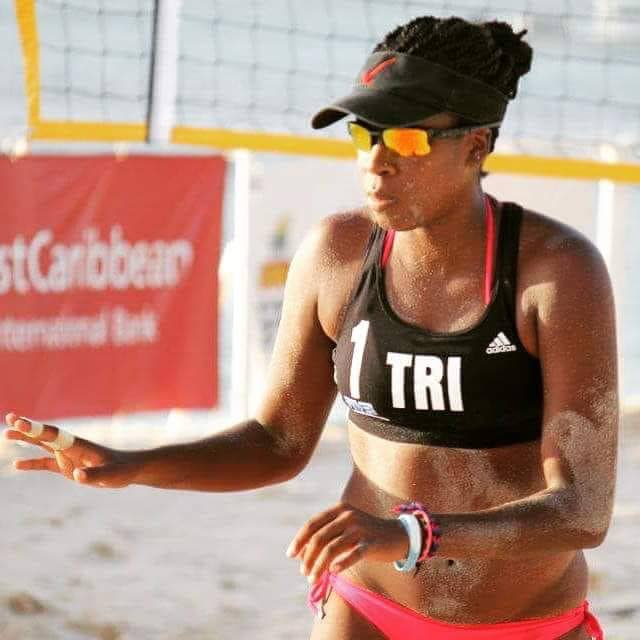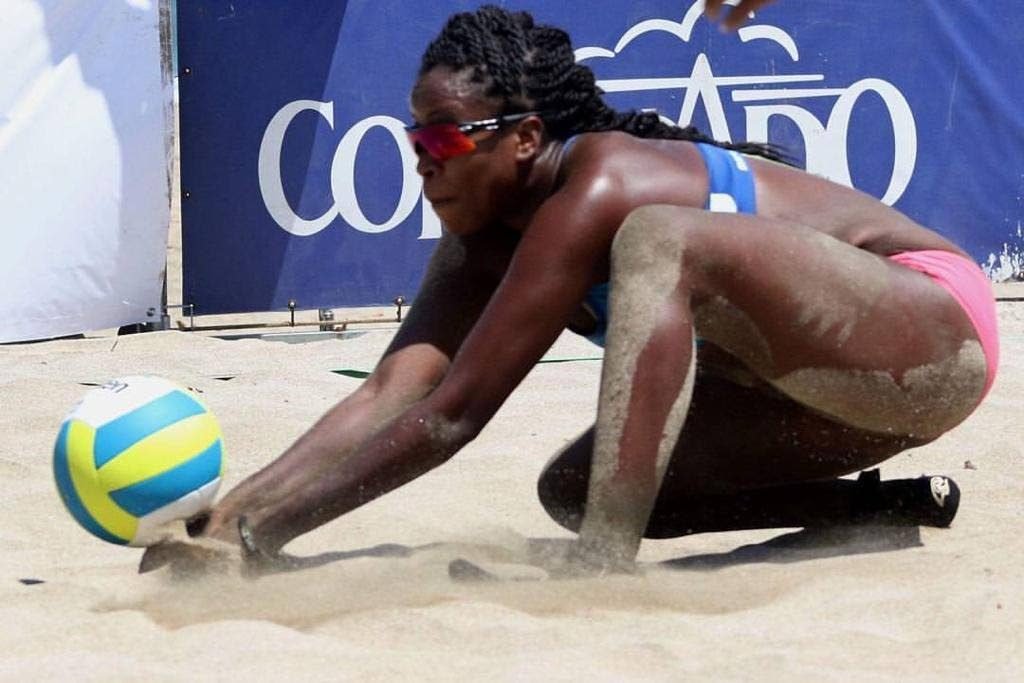Raising awareness of cervical cancer

Raising awareness about cervical cancer has personal meaning to Wendy Ribeiro, one of the founders of the The Ayana S Dyette Foundation. Her sister, Ayana S Dyette succumbed to cervical cancer on July 1, 2018.
"She was 32, a national volleyball player who represented Trinidad and Tobago in competitions all around the world," Ribeiro told WMN. Dyette was in the process of transitioning from playing to coaching when she was diagnosed with Stage 4 cervical cancer on January 15, 2018. "My sister had no children, she was extremely fit and never got sick, literally. She was a very outgoing individual, who loved having a good time." Dyette experienced abnormal, heavy bleeding during her menstrual cycle and was diagnosed with fibroids. "That was not inaccurate, because she did have fibroids," Ribeiro said. However, because a Pap smear was not done then, the cell abnormalities remained unknown until her diagnosis. The test is carried out on a sample of cells from the cervix to check for abnormalities that may be indicative of cervical cancer.

"She had surgery, did chemo, radiation and brachy therapy," but died at the Vitas House hospice within five and a half months of her diagnosis.
Ribeiro, her sister Crystal Dyette, and niece Paige Ribeiro-Agard have since made it their mission to educate and raise awareness about cervical cancer through the foundation.
"The idea of the organisation was unofficially launched via our participation in a cervical cancer awareness campaign, launched by another organisation in October 2018," Ribeiro said. The foundation was formally registered as a non-profit organisation in January, and its main objective is to make people aware of the issues surrounding cervical cancer. According to the World Health Organisation (WHO), "Cervical cancer is the fourth most frequent cancer in women with an estimated 570,000 new cases in 2018, representing 6.6 per cent of all female cancers. Approximately 90 per cent of deaths from cervical cancer occurred in low- and middle-income countries."

Among the symptoms of cervical cancer are irregular, inter menstrual (between periods) or abnormal vaginal bleeding after sexual intercourse; pain in the back, leg or pelvis; extreme fatigue, abnormal weight loss, loss of appetite; vaginal discomfort, odorous vaginal discharge; and a single swollen leg. In more advanced stages of the disease, more severe symptoms may arise.
Riebeiro said the organisation has pushed it objectives through a couple of events since its launch, including the Smearathon walkathon, television and newspaper interviews, talk session on i95.5 FM's Eye on Dependency radio programme, collaboration with PSI Caribbean on video presentations, and most recently, an informal walk hosted by the foundation last Sunday, in commemoration of Cervical Cancer Awareness Month, which is observed in January every year. "The event was not advertised on social media or media networks, as it was an informal event for friends, family, well-wishers, cancer survivors who wanted to come out for a leisurely stroll to raise cancer awareness. We plan to have a formal walk in the upcoming months."
She said one of the major challenges faced by the foundation's team is getting the younger generation to grasp just how crucial it is to be screened for cervical cancer, and the role early detection plays in treatment. "The foundation is newly formed. However, for our time in operation, the challenge is in getting especially younger women to understand the importance of getting tested. Many of them feel as though they cannot contract the disease and that cancer is for older persons." The objective of screening is to detect precancerous changes, which, if not treated, may lead to cancer. If abnormalities are found during screening, there will be need for follow-up, diagnosis and treatment, in order to prevent the development of cancer or to treat cancer at an early stage. One of the major steps in the screening process is doing a Pap smear.

The WHO says there can be a reduction in the high mortality rate of cervical cancer on a global scale through a comprehensive approach that includes prevention, early diagnosis, effective screening and treatment programmes. "There are currently vaccines that protect against common cancer-causing types of human papillomavirus and can significantly reduce the risk of cervical cancer," the health organisation said.
One of the long-term goals of The Ayana S Dyette Foundation is to save as many lives as possible through its initiatives, among which are collaborations with the Trinidad and Tobago Cancer Society, The Just Because Foundation and PSI Caribbean. It also intends to seek voluntary services from obstetrician, gynaecologist, oncologists and other specialists who deal with diagnosing and treating cancer. Unfortunately, funding is also one of the hurdles the team faces in moving forward. "The foundation also has challenges in gaining sponsorship for some of the info-session events that we would like to host. Primarily it is supported from personal funds and donations, or help from friends and family."


Comments
"Raising awareness of cervical cancer"